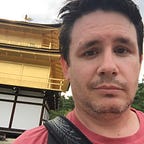You’re Not The Only Applicant
Lots of people ask questions about when they’re ready to apply for jobs, or why they aren’t succeeding at getting one. They often forget one critical factor.
People often ask on communities like Reddit whether they’re qualified for jobs, whether they should be applying to junior positions, or what they need to learn in order to get one. They seem to ignore or forget that it actually doesn’t entirely matter what you know.
There is a mistaken impression that hireability is a boolean. You are either ready for a job and should get one, or you’re not.
The simple fact is there is more than one applicant for every web development job. That typically doesn’t change whether you’re going for senior positions or intern roles, but junior roles are definitely more competitive. You don’t get a role because you’re qualified for the role - that just keeps your CV out of the bin.
You get a role because you’re better than the other candidates.
I know it seems obvious, but from what I hear people say it’s obvious that there are some misconceptions at play here that need to be dealt with.
There’s no magic answer to getting to that stage. But it’s important to know that you’re answering the right question. In particular it’s important to know that if things don’t work, if it’s difficult to find a job or secure an interview, it’s not necessarily because you aren’t qualified for the job. It might just be because someone else, maybe just that one other person, is more qualified.
The reason I’m writing this is to make sure junior developers understand what is happening when they struggle to find work. “But I’m qualified as a junior!” is all well and good, but maybe everyone else is just that bit more qualified. Maybe while you know basic HTML and some CSS the other juniors applying have several years of running their own web applications and extensive skills with cutting edge JavaScript. Maybe your Vue expertise is less impressive for this React agency than someone else’s basic React chops.
As I said, there’s no magic solution, no silver bullet. All you can do is to try and keep learning, keep growing. There is nothing more impressive on a resume than completed projects. Build things. Make things. Learn things. Specialise if you like and try and get a really deep knowledge of something like React, learn Redux, learn Sagas and Thunks, Hooks, Context and all of that. Learn different approaches, build tools and thinking. But note that learning doesn’t just mean courses or reading, it means building. Don’t just know things, demonstrate them. If you do that and you keep at it you’ll eventually come across a role where you’re the person who can demonstrate the most.
Or alternatively, go for a wider skillset, and cast a wider net. Learn a range of build platforms, a few different frameworks. Learn more general skills, learn Sass, PostCSS, Bootstrap, Tailwind, React, Vue, Angular. Learn Webpack and NodeJS, play with express. Build simple projects that demonstrate a broad range of skills and — most critically — the capability to learn quickly.
Try and make it so that next week you’re a better candidate you were last week.
The one thing you cannot do in this career and especially at the start of it, is to stop learning, stop developing. Keep building, keep learning, and keep applying. What you need to do is not just be qualified. Even if you are, so is everyone else applying. What you actually need to do is stand out from the pack. And the best way to do that is to know more, and be able to show it.
